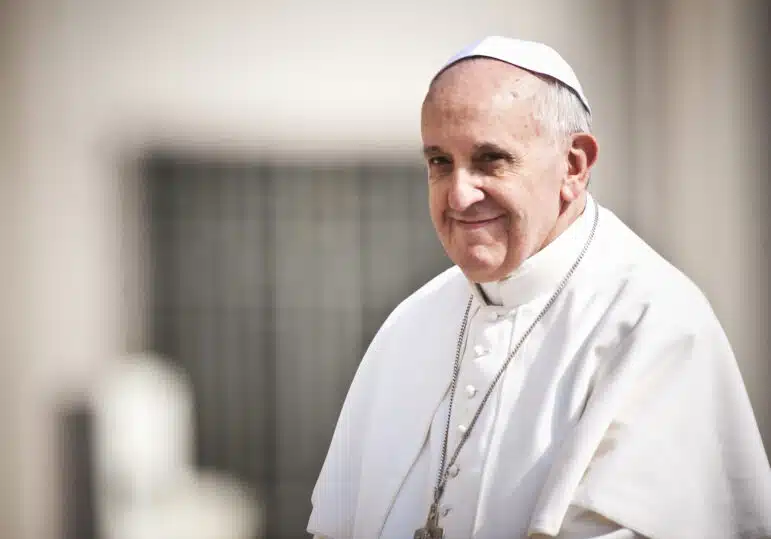
Love in Deed: Judging the Law by the Needs of the Neighbor
Pope Francis recently released a “Letter to the Bishops of the United States of America,” addressing the “major crisis taking place.” In this rare direct message, possibly prompted by Vice President J.D. Vance’s remarks justifying suspension of U.S. foreign aid programs by reference to the Catholic notion of an “order of love,” Pope Francis speaks about the “drama of migration” as a crisis also experienced by Jesus and his family—at once a universal phenomenon of dislocation and trauma, and the unique incarnational witness of God’s solidarity with human suffering. He invokes human dignity and human value as non-negotiable dimensions of human identity, and as the essential values that validate the rightness of social norms and laws.
Pope Francis’ brief message is much more than an analysis or critique of specific policies: it is a meditation on the foundation of law and the meaning of human social existence.
Human value is transcendent and hence “decisive”; it “surpasses and sustains every other juridical consideration that can be made to regulate life in society.” Norms and public policies are to be judged legitimate “in the light of the dignity of the person and his or her fundamental rights…An authentic rule of law is verified precisely in the dignified treatment that all people deserve, especially the poorest and most marginalized.”
The opposite is not true: civic law is not the ultimate source or rightful judge of a person’s legitimacy or value; policies can not arbitrarily assert that having illegal migrant status amounts to a crime. In the strongest terms, Pope Francis trenchantly distinguishes between legal status and criminality. “The rightly formed conscience cannot fail to make a critical judgment and express its disagreement with any measure that tacitly or explicitly identifies the illegal status of some migrants with criminality.”
It is clear that the poorest nations are suffering disproportionate impacts of the fossil fuel consumption outrageously overconsumed by the superdeveloped nations.
Erin Lothes
Superdeveloped nations must in fact recognize that they stand to be judged according to the ethical category of ecological debt asserted in Laudato Si 51: “The warming caused by huge consumption on the part of some rich countries has repercussions on the poorest areas of the world.” While any specific climate impact cannot be directly traced in a straight line to overconsumption, it is clear that the poorest nations are suffering disproportionate impacts of the fossil fuel consumption outrageously overconsumed by the superdeveloped nations. Environmental deterioration and poverty force many to leave, as the Pope points out, and they become migrants or displaced persons who deserve fair treatment, not deportation. “The act of deporting people who in many cases have left their own land for reasons of extreme poverty, insecurity, exploitation, persecution or serious deterioration of the environment, damages the dignity of many men and women, and of entire families, and places them in a state of particular vulnerability and defenselessness.”
Clearly, the Pope recognizes a nation’s right to defend itself and its communities from those committing violent crimes. They can and should develop policies for “regular and orderly migration.” However, beyond assessing policies, in this letter the Holy Father summons humankind to a deeper understanding of global kinship. The Vice President misinterprets and narrows the concept of ordo amoris when he restricts the idea of a primary duty to the needs of one’s immediate family in such a way that the needs of others can be excluded or made optional. The human person is a subject existing in relationship with all. Everyone is a neighbor, the keeper of each other as a brother and sister. To think of the individual primarily in terms of tribe, community or national identity “distorts social life and imposes the will of the strongest as the criterion of truth.” Instead, the Good Samaritan’s generosity is the criterion for understanding how to be a neighbor, which is the greatest command.
The Pope exhorts all of goodwill to eschew narratives that discriminate against migrant and refugee brothers and sisters. He asks all to live with charity and clarity, to build bridges bringing us closer together avoiding “walls of ignominy,” and to advance a society that affirms the dignity of all, within the embrace of la Virgen morena, Our Lady of Guadalupe.
